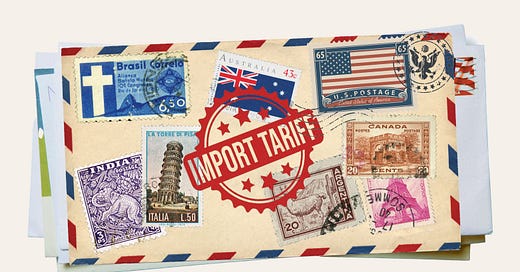
No one has done more than Donald Trump to define nationalist populism, the global movement to control borders and reassert traditional values. Yet his trade policies may wind up killing the movement overseas.
Consider the recent travels of Vice President J.D. Vance. On Monday, he met with Indian prime minister Narendra Modi. Among the topics they discussed: a potential agreement that could stop President Trump’s 27 percent reciprocal tariff on Indian imports from taking effect.
Much more than the global trading system is at stake. Since his first term, Trump has prioritized U.S.-India relations. Trump likes Modi. The two leaders have a common interest in restraining China. They also share a political profile.
For all their personal differences—Modi is a declared celibate and Trump is, um, not—the two men are religious, nationalist populists. That means they uphold national sovereignty. They denounce woke elites.
The unlikely friendship between Trump and Modi reflects a paradox: Nationalism has gone global. An informal alliance of nationalist populists crosses oceans and spans continents. Its members include Britain’s Nigel Farage, France’s Marine Le Pen, Germany’s Alice Weidel, Hungary’s Viktor Orbán, Poland’s Jarosław Kaczyński, Italy’s Giorgia Meloni, Israel’s Benjamin Netanyahu, Turkey’s Recep Tayyip Erdoğan, Argentina’s Javier Milei, El Salvador’s Nayib Bukele, and Brazil’s Jair Bolsonaro, among others.


